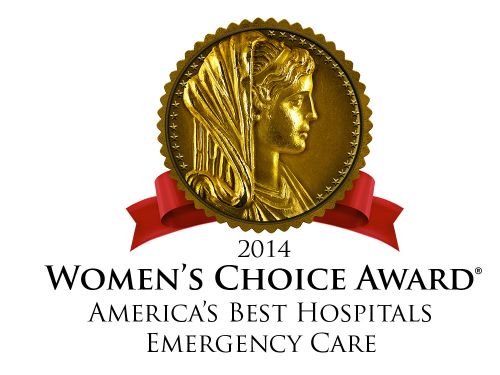Monday, March 03, 2014
Prairie Lakes CEO Selected as Top 25 Women in Business
Prairie Business magazine has selected Jill Fuller, President and CEO of Prairie Lakes Healthcare System, as a Top 25 Women in Business.
Jill’s profile in the March 2014 issue of Prairie Business magazine reads: “Jill joined Prairie Lakes as vice president of patient care services in 2000 and was promoted to president and CEO in 2009. She has overseen the organization’s growth while remaining a financially strong, independent healthcare system during a period of rapid consolidations, decreased utilization and increased costs throughout the health care industry. In 2013 alone, the organization recruited nine physicians, added outreach sites, established a pulmonology program and added several other services. It received an A+ rating from Standard & Poor and was recognized by the South Dakota Association of Healthcare Organizations for having a 1S percent Medicare margin while continuing to provide low-cost service for its patients. Jill is a very active member of the local community and serves on multiple committees. She is a board member of the Watertown Development Co. and was named the 2013 Business Woman of the Year by the Watertown Area Chamber of Commerce. She has also served as an adjunct faculty member at South Dakota State University, where she taught executive leadership courses, and consults for the American Hospital Association.”
Published in
News and Announcements
Thursday, February 27, 2014
Preventing Lung Cancer May Start with Vitamin D
Around 1 million deaths a year are caused from lung cancer, which makes this one of the three most common cancers.
While smoking and other exposures to chemicals is the number one cause of lung cancer, there is also a correlation with significant lower UVB exposure. According to the researchers from the University of California at San Diego, there is a connection between higher rates of lung cancer and less exposure to the sun.
This is not the first time researchers have connected the two. In 2001, the British Journal of Cancer stated that cooked and raw fish lowered the risk of lung adenocarcinoma. Most recently a study has been conducted on Norwegian men and women who have eaten cod liver oil, this was found to protect against lung cancer. Both fish and cod liver oil are rich in vitamin D.
The average adult needs a significant amount of vitamin D that supplements and sun exposure cannot supply alone. In order to take advantage of cancer protection benefits from vitamin D, the Anticancer Research Journal suggest higher levels of as much as 4,000-8,000 IU. This means supplementing, getting sun exposure and eating foods rich in vitamin D are a must.
Published in
News and Announcements
Tuesday, February 25, 2014
Preventing Heart Disease
Although you can’t change family history, age or sex there are ways to avoid heart problems before it’s too late.
There are some key heart disease prevention steps you can take, starting with not smoking or using tobacco. Tobacco use is one of the leading factors in developing heart disease. The chemicals in cigarettes can lead to the narrowing of arteries, ultimately causing a heart attack. No amount of smoking is safe, but the more you smoke the greater the risk of heart disease.
Another prevention step is exercising for 30 minutes most days of the week. This doesn’t mean running a marathon, it can be as simple as walking around the neighborhood. This will allow you to maintain a healthy weight which reduces your chances of developing not only heart disease, but high blood pressure, high cholesterol or even diabetes.
Along with maintaining a healthy weight is a well balanced diet. Diets rich in fruits, vegetables and whole grains can help protect your heart. Beans and other low-fat sources of protein are important as well.
Quality sleep is another key prevention step in reducing the risk of heart disease. Those z’s are important because people who do not get enough sleep are at risk of obesity, high blood pressure, heart attack, diabetes and depression. Adults need seven to nine hours of sleep a night. Setting a sleep schedule and making sleep a priority in your life is extremely important when it comes to heart health.
Finally get regular health screenings so your doctor can monitor your blood pressure and cholesterol. If the numbers are not good doctors can take action before it’s too late.
Stay heart healthy by doing these six prevention steps:
1- Don’t smoke or use tobacco
2- Exercise for 30 minutes a day
3- Eat a well balanced diet
4- Maintain a healthy weight
5- Get enough quality sleep
6- Get regular heart screenings
Published in
News and Announcements
Tuesday, February 25, 2014
Notification of Scam
Prairie Lakes Healthcare System was notified by the Watertown Police Department of a potential scam. An automated call system was used to contact a person, stating the person owed money to Prairie Lakes and asking for the person’s credit card information. This phone call was not placed by Prairie Lakes.
Please be aware, Prairie Lakes does not use an automated call system to contact patients to collect financial information.
The Watertown Police Department stated, "An easy way to verify if the caller is who they say they are is to ask for a phone number and call them back. A legitimate company will be happy to provide you with any information to verify their identity." If you believe you have been the victim of a scam, contact the Watertown Police Department at 605-882-6210.
Patients who have questions regarding bills or would like to make payments over the phone should call Prairie Lakes directly at 605-882-7000.
Published in
News and Announcements
Thursday, February 13, 2014
Prairie Lakes Healthcare System Receives Women’s Choice Award As One of America’s Best Emergency Care Hospitals
Prairie Lakes Healthcare System has been named a recipient of the Women’s Choice Award as one of America’s Best Hospitals in Emergency Care. Each year, there are more than 125 million emergency room visits in the U.S., with about a fifth of them being children under the age of 15. Emergency departments continue to be an essential part of the healthcare system as they provide fast, life-or-limb saving care to millions each year.
The Women’s Choice Award is the only distinction that identifies the nation’s best healthcare institutions and signifies Prairie Lakes Healthcare System’s commitment and passion for creating an extraordinary healthcare experience for women and all patients. The Women’s Choice Award is also the lone recognition program that measures against the needs and preferences of women. Of the seven core measures reported by emergency departments to the Centers for Medicare and Medicaid Services (CMS), women rate “door to diagnostic time” or in other words, “door to doctor,” as the most important criteria when selecting an emergency room. The least important reported measure is the total time before leaving the emergency room.
“The award is based on robust criteria that consider patient satisfaction, clinical excellence and what women really want when it comes to treatment and a quality hospital experience,” says Delia Passi, CEO & founder of WomenCertified, home of the Women’s Choice Award. “Prairie Lakes Healthcare System not only performed well clinically with regard to emergency care measures, but they also have a high recommendation rating, which is very important to women when it comes to health related decisions.”
Hospitals earning the Emergency Care Award consistently rank in the top 25 percent of the 3,600 hospitals reporting on their emergency department’s performance to the Centers for Medicare and Medicaid Services (CMS). The seven measures CMS publicly reports relate primarily to the amount of time taken in the ER such as time for diagnosis, medication, and admission to the hospital, and are weighted according to the priorities of women surveyed. A hospital can be eliminated from the award if they fall outside the 25th percentile for two or more of the seven measures, depending on their importance. The award is also limited to those hospitals with a solid recommendation on Hospital Consumer Assessment of Healthcare Providers and Systems.
“At Prairie Lakes we strive to provide the best patient experience to the people we serve. This award recognizes the dedication of our emergency services staff and physicians to treat each individual and their family in a professional, compassionate and timely manner,” said Jill Fuller, CEO of Prairie Lakes.
As the collective voice of female consumers, the Women’s Choice Award provides women with recommendations they can trust, from other women.
“Our mission is to reduce the risk for women and their families so they can make smarter healthcare choices,” added Passi. “We have found that recommendations are the single most important consideration used by women in selecting a hospital for themselves and their family. By helping women know which hospitals in their area provide the best critical care, we are able to help them make better decisions, especially when it comes to emergency situations.”
Published in
News and Announcements
Thursday, February 13, 2014
Winter Months Mean More Heart Attacks
Winter blues aren’t just from the weather. It is true that heart attacks increase in the winter months. In fact, according to Doctor Jonathan Waltman with the KentuckyOne Cardiology Associates, there is a 50 percent increase in heart attacks during the winter months.
Surprisingly this isn’t necessarily from the weather, although cold weather can exacerbate the symptoms of heart disease. If someone does have heart disease it is best to bundle up in the winter and limit breathing in cold air.
Many believe the increase in heart attacks may be due to weight gain in the winter months. Eating more and exercising less is common in the winter and the extra weight puts unnecessary strain on your heart.
Keeping a good exercise routine and eating healthy all year round is key in maintaining long-term heart health.
Published in
News and Announcements
Monday, February 10, 2014
Varying Heart Attack Symptoms for Men and Women
Chest pain and numbness in the left arm means heart attack right? While these are classic heart attack symptoms, there are several other warning signs that men and women may ignore.
Most heart attacks start with mild pain or discomfort. In general, 64% of women, as opposed to 50% of men, who die from heart attacks do not have classic symptoms.
For men the most common symptoms include chest pain, tingling/numbness down the left arm, shortness of breath, sweating and light-headedness. Studies have shown that women may experience different signs than men.
“Women often experience less specific signs and symptoms such as back, neck, jaw or stomach pain; shortness of breath, indigestion or vomiting. Women tend to have more heartburn, loss of appetite, heart flutter or new fatigue,” said Dr. Salem Maaliki, interventional cardiologists at Prairie Lakes Healthcare System. “Studies suggest that women tend to have a better body awareness overall than men. Therefore, it’s critical women learn the signs and symptoms of a heart attack.”
According to the American Heart Association, heart disease is not gender specific. It is the leading cause of death for men and women in the United States. The AHA advises people to learn the signs of a heart attack and to have any unusual symptom checked out by a doctor.
Published in
News and Announcements
Friday, January 31, 2014
PEO Provides Donations to the Caring Club House
In December the Prairie Lakes Caring Club House was blessed with a variety of donations from the Watertown Philanthropic Educational Organization (PEO). Donations included of sheets, towels, toiletry items, bottled water, canned goods, and gifts cards for groceries for the House. PEO is an international women’s organization with approximately 250,000 members.
Pictured here are PEO members who delivered the donations: Dorothy Bassingthwaite, President, Donna Schoenbeck, Helen Adducci, Kim Vener and Carol Johnson. Also pictured are Alison Gilbertson, Director of the Prairie Lakes Healthcare Foundation and Mary Opseth, Caretaker of the Caring Club House.
The Caring Club House was created to help meet the hospitality needs of patients, their families and caregivers. As Prairie Lakes Healthcare Systems grows as a regional medical center, more people utilize Watertown for medical services. As part of our mission to provide compassionate care, we are pleased to offer this special home to help ease the burdens patients, families and caregivers may experience during a medical illness and treatment. In 2013 the Caring Club House served nearly 1,000 guests from a variety of communities and states.
Funded and furnished completely through community support and donations, the Caring Club House is a not-for-profit, community based project of the Prairie Lakes Healthcare Foundation. All contributions of time, materials and money are welcome and are tax deductible as allowed by law. Without support from generous donors, this service would not be possible.
Prairie Lakes Healthcare Foundation exists to raise funds with which to support and advance the health care services through Prairie Lakes Healthcare System. Your support is appreciated and necessary to continue the maintenance and advancement of healthcare services in our region. For questions about how you can make a donation, please contact the Foundation office at 882-7631, email This email address is being protected from spambots. You need JavaScript enabled to view it. or visit www.prairielakes.com.
Published in
News and Announcements
Friday, January 03, 2014
Prairie Lakes Reflects on Successful Year
This past year brought about great change to the healthcare industry, nationally and right here in Watertown. Hospitals across the country are working diligently to adapt to the changes brought by the Affordable Care Act, including: cuts to Medicare reimbursements, the need for new policies and procedures to comply with the law and the emphasis on improving quality.
"In 2013, healthcare reform proceeded at full speed making it a challenging time to be in healthcare. Hospitals are experiencing cuts in reimbursement, decreased utilization and increased costs due to government regulation," said Jill Fuller, CEO of Prairie Lakes. "In spite of these challenges, Prairie Lakes had a great year in 2013. We are well positioned to service the region with great doctors and new services in 2014."
Prairie Lakes Healthcare System has managed to meet the requirements of the Affordable Care Act, while also growing services to meet the needs of the region, adding physician, meeting quality standards and remaining financially strong. Following are a few highlights from 2013:
Growth
- Eight physicians joined Prairie Lakes: Dr. Steven Feeney, hospitalist; Dr. Thomas Lechner, hospitalist; Dr. William Miner, hospitalist; Dr Jennifer Jones, cardiologist; Dr. Jeffrey Kowitz, pulmonologist; Dr. Henri Lanctin, urologist; Dr. James Bear, emergency medicine; and Dr. Leighton Singh, emergency medicine.
- Three new oncology outreach sites were established. Dr. Homam Alkaied, medical oncologist and hematologist, now sees patients in Appleton, Dawson, and Madison, Minn.
- Prairie Lakes opened the region's first full-time clinic focused on the specialty of pulmonology in August. Dr. Kowitz is the region's first full-time pulmonologist. This led to the start up of pulmonary rehabilitation program in October.
- Prairie Lakes entered into a partnership with Minneapolis-based Consulting Radiologists Limited in April. This allows for 24/7 radiology coverage through virtual transmission of images as well as 24/7 telephone access to CRL radiologists to discuss cases and interpretations. In addition, this has allowed the radiology department to expand imaging exams offered as well as offer new procedures.
- Dr. Lanctin, urologist, introduced cryo-ablation therapy and performed the first procedure at Prairie Lakes in November. Cryotherapy is a minimally invasive procedure that delivers freezing temperatures to the prostate destroying cancerous cells with minimal side-effects.
- Dr. Evelio Garcia and Dr. Salem Maaliki, cardiologists, began offering an innovative treatment for severe left heart failure known as Biventricular Implantable Cardioverter Defibrillator (ICD). A biventricular ICD may be used to provide a more balanced method of controlling rapid heartbeat. The biventricular ICD detects when the heart is beating at a faster than normal rate and shocks it back to normal.
Awards
- Prairie Lakes received the American College of Cardiology Foundation's NCDR ACTION Registry–GWTG Platinum Performance Achievement Award for 2013—one of only 197 hospitals nationwide to do so. The award recognizes Prairie Lakes' commitment and success in implementing a higher standard of care for heart attack patients, and signifies that Prairie Lakes has reached an aggressive goal of treating these patients to standard levels of care as outlined by the American College of Cardiology/American Heart Association (ACC/AHA) clinical guidelines and recommendations.
- Prairie Lakes was recognized as a top-ranked hospital in the country for the value it provides to the community by Cleverley + Associates, a leading healthcare firm specializing in operational benchmarking and performance enhancement strategies. Prairie Lakes received the Community Five Star® designation based on its performance in the following areas: financial viability and plant reinvestment, hospital cost structure, hospital charge structure and hospital quality performance.
Financially Strong
- Prairie Lakes completed its annual credit rating review by Standard & Poor's. The final report was published in March and affirmed an "A+" rating and a stable outlook.
- The South Dakota Association of Healthcare Organizations released a report called "Medicare Margins at a Glance." This report compared Prairie Lakes to other hospitals in the state and nation. The total Medicare margin reported for Prairie Lakes was 15%. For South Dakota hospitals as a whole, the overall margin was only 2%. For the nation as a whole, the overall Medicare margin was negative 6%.
- In August, Prairie Lakes was notified that no penalties for avoidable hospital admissions were applied to Medicare reimbursement for Federal FY 2013 and Federal FY 2014. Of the 3,379 hospitals included in the Federal government's Hospital Readmission Reduction Program started in FY 2013, 2,225 hospitals will receive readmission penalties.
Published in
News and Announcements
Monday, December 09, 2013
Prairie Lakes Receives Platinum Performance Achievement Award for Care Provided to Heart Attack Patients
Prairie Lakes Healthcare System has received the American College of Cardiology Foundation's NCDR ACTION Registry–GWTG Platinum Performance Achievement Award for 2013—one of only 197 hospitals nationwide to do so. The award recognizes Prairie Lakes' commitment and success in implementing a higher standard of care for heart attack patients, and signifies that Prairie Lakes has reached an aggressive goal of treating these patients to standard levels of care as outlined by the American College of Cardiology/American Heart Association (ACC/AHA) clinical guidelines and recommendations.
"We are honored to receive this award," said Jill Fuller, President and CEO of Prairie Lakes. "This award exemplifies the quality of care we provide to heart attack patients at Prairie Lakes from treatment in the Cardiology Clinic, to the cath lab, and through the rehab process."
To receive the ACTION Registry–GWTG Platinum Performance Achievement Award, Prairie Lakes consistently followed the treatment guidelines in the ACTION Registry–GWTG Premier for 8 consecutive quarters and met a performance standard of 90% for specific performance measures. Following these treatment guidelines improves adherence to ACC/AHA Clinical Guideline recommendations, monitors drug safety and the overall quality of care provided to ST-elevation myocardial infarction (STEMI) and non- ST- elevation myocardial infarction patients (NSTEMI).
"The time is right for Prairie Lakes to be focused on improving the quality of cardiovascular care by implementing ACTION Registry–GWTG. The number of acute myocardial infarction patients eligible for treatment is expected to grow over the next decade due to increasing incidence of heart disease and a large aging population," said Leah Le, Prairie Lakes Cath Lab Director.
ACTION Registry-GWTG empowers health care provider teams to consistently treat heart attack patients according to the most current, science-based guidelines and establishes a national standard for understanding and improving the quality, safety and outcomes of care provided for patients with coronary artery disease, specifically high-risk STEMI and NSTEMI patients.
"The American College of Cardiology Foundation and the American Heart Association commend Prairie Lakes Healthcare System for its success in implementing standards of care and protocols. The full implementation of acute and secondary prevention guideline—recommended therapy is a critical step in saving the lives and improving outcomes of heart attack patients," stated James Jollis, MD, FACC, ACTION Registry-GWTG Chair and Professor of Medicine and Radiology at Duke University Hospital and Deepak L. Bhatt, MD, MPH, FACC, FAHA, ACTION Registry-GWTG Co-Chair and Chief of Cardiology at VA Boston Healthcare System, Senior Physician at Brigham and Women's Hospital, and Professor of Medicine at Harvard Medical School.
ACTION Registry–GWTG is a partnership between the American College of Cardiology Foundation and the American Heart Association with partnering support from the American College of Emergency Physicians and the Society of Cardiovascular Patient Care.
Published in
News and Announcements
More...
Wednesday, November 27, 2013
Handling the Holidays: Tips to Cope
Prairie Lakes Healthcare System's pastoral care team will host "Handling the Holidays: Tips to Cope" on Monday, December 2 at 5:30 p.m.
The loss of a loved one can be especially hard to cope with during the holidays. This group will give participants an informal setting in which to meet other people who are coping with the loss of a loved one.
The group will meet in the North Conference Room at Prairie Lakes Hospital in Watertown. There is no charge to attend the session. Please call 882-6743 for additional information.
Published in
News and Announcements
Monday, November 18, 2013
Prairie Lakes Healthcare Foundation Contributes to the Enhancement of Orthopaedic Surgical Services
The Prairie Lakes Healthcare Foundation presented a $44,000 check to Prairie Lakes Healthcare System on November 11, 2013 to purchase new drills and saws to enhance orthopaedic surgical services. The new equipment allows for improved control and greater visibility for the orthopaedic surgeon during surgery, minimizing the potential for soft tissue damage. The total cost of this equipment was approximately $250,000.
This money was raised at the BASH (Building A Superior Hospital) 2013. BASH is an annual event held by the Prairie Lakes Healthcare Foundation and supported, in part, by generous donors to raise funds and awareness for medical needs at Prairie Lakes. Next year's event is scheduled for April 12, 2014 at the Watertown Event Center and is open to the public.
Healthcare is a vital component of a community's quality of life. The Prairie Lakes Healthcare Foundation exists to raise funds with which to support and advance the healthcare services through Prairie Lakes Healthcare System. Securing the future of healthcare through the maintenance and enhancement of existing services and expanding specialty services is how the foundation meets the growing medical needs of our region.
If you are interested in investing in the future of healthcare by making a contribution to the foundation, contact the Prairie Lakes Healthcare Foundation office at 605-882-7631 or email at This email address is being protected from spambots. You need JavaScript enabled to view it.. Your continued support will help us meet the healthcare challenges of tomorrow.
Published in
News and Announcements
Thursday, November 14, 2013
Cough, Sneeze, Sniffle, Time to Tackle Winter Illnesses
Dr. Jeffrey Kowitz, pulmonologist with Prairie Lakes Healthcare System, will offer a free community presentation titled "Breathe Easier" Wednesday, November 20 from noon to 1 p.m.
Contagious and common during the winter months, illnesses such as colds, the flu and pneumonia can put a damper on your daily activities. Dr. Kowitz will share information on these common winter illnesses including on prevention, symptoms and treatments. He will be joined by Bobbie Bach, RN, Pulmonary Rehab Coordinator and Jason Hoots, respiratory therapist, who will be available to answer questions regarding pulmonary services.
The presentation will take place at the Hy-Vee Club Room located at 1320 9th Avenue Southeast in Watertown. A free lunch will be provided.
Please pre-register to attend this event.
Published in
News and Announcements
Monday, October 21, 2013
Lift A Child Up: Practical Strategies for Helping Children Develop Healthy Self-Esteem
- The Prairie Lakes Healthcare Foundation invites the public to "Lift A Child Up: Practical Strategies for Helping Children Develop Healthy Self-Esteem" presented by Dr. Marianne Neifert, MD, MTS, FFAP. The presentation will take place on Wednesday, October 30 from 6 p.m. to 7:15 p.m. at the Watertown Events Center Heritage Theater.
In her presentation, Dr. Neifert will provide practical strategies for helping children feel infinitely worthy and able to handle the choices, challenges and changes of life. Parents, grandparents, teachers, coaches, counselors – all stakeholders in children's wellbeing – will learn how their daily interactions with children can either enhance or undermine self-esteem.
Dr. Neifert offers the following description of the program: Of all the awesome responsibilities parents assume, few are more daunting than helping children develop healthy self-esteem. Self-esteem – a composite inner picture about one's worth and competence – is one of the most important, and yet misunderstood, concepts in parenting. Our children's self-evaluation will impact their happiness, academic success, relationships, creativity, ambitions, perseverance, resilience, and problem-solving. The conviction that one is both loveable and capable does not make children conceited, selfish or spoiled, or engender a sense of entitlement. Rather, healthy self-esteem describes appropriate self-acceptance, self-love, and self-confidence that serve as the foundation for self-improvement and the basis for all social concern for others. No wonder instilling healthy self-esteem in our children has been called the ultimate yardstick of parenting.
Dr. Neifert, nationally known as Dr. Mom®, is an exceptional motivational speaker who addresses sizzling topics on work-life balance, positive parenting, breastfeeding promotion and management, positive psychology, and spirituality. In addition to being a dynamic professional speaker, renowned pediatrician, best-selling author, and medical educator, Dr. Mom is the mother of five adult children—all born during her medical training—and the grandmother of seven. She combines her professional expertise, personal experience, and practical wisdom to offer sage advice about a host of topics. Dr. Neifert has enchanted audiences in 48 states and internationally.
Prior to the presentation a social hour will take place from 5 p.m. to 6 p.m. The Watertown Events Center is located at 1901 9th Ave SW in Watertown, SD. Please register to attend online at www.prairielakes.com or by calling 882-7631.
This program is being offered free of charge thanks to the cooperation of Prairie Lakes Healthcare System, Prairie Lakes Healthcare Foundation and the South Dakota Department of Health WIC Program. Funding for speaker provided through the South Dakota Department of Health WIC Program.
Published in
News and Announcements
We can help you find a doctor. Call 605-882-7000 or search online.












